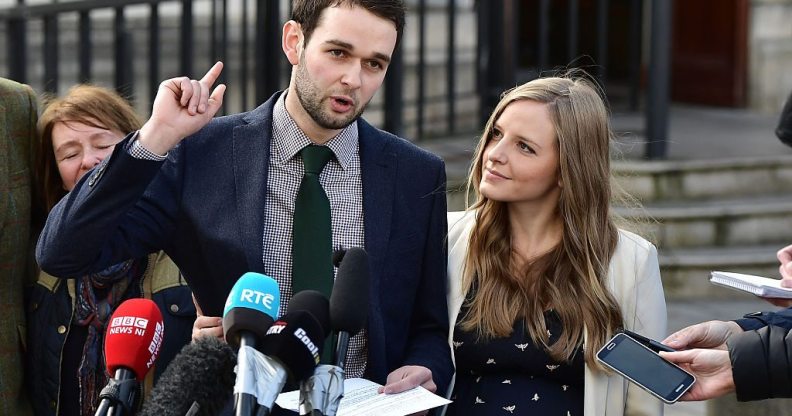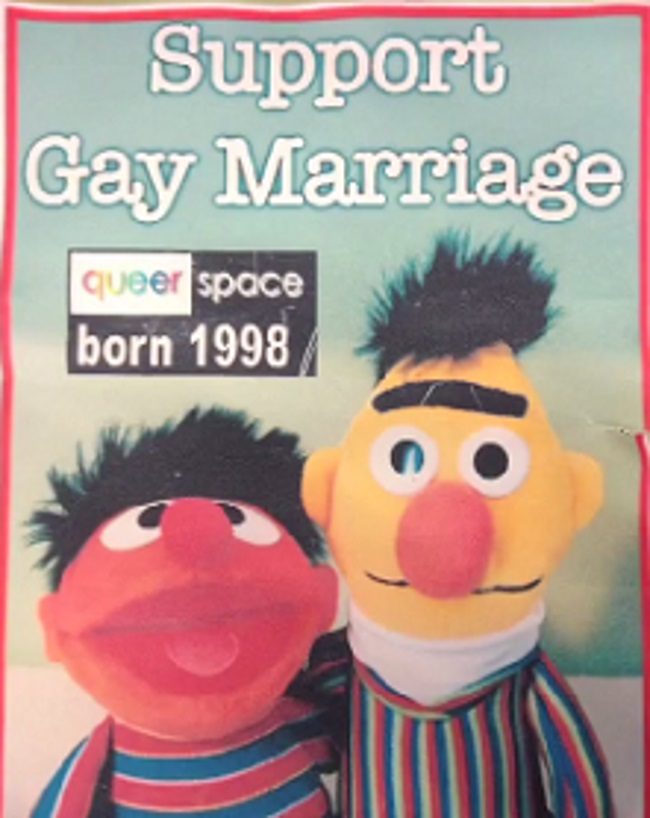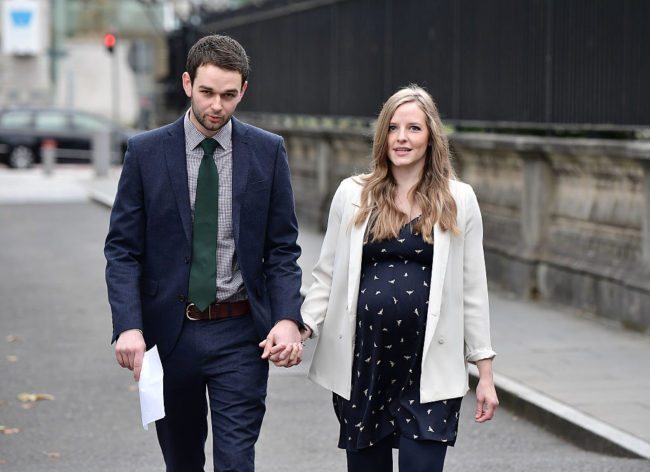UK Supreme Court sets date for Northern Ireland ‘gay cake’ case

The UK Supreme Court will sit in Northern Ireland to consider a judgment against the Christian-owned bakery which breached equality laws by refusing to make a cake which supported same-sex marriage.
It was announced today that the highest in the UK would sit in Belfast for the first time to consider the case of Ashers Bakery, which was found guilty in 2015 of unlawful discrimination based on sexual orientation.
The company in Newtownabbey, Northern Ireland refused to bake a cake showing the message ‘Support Gay Marriage’ above an image of Sesame Street’s Bert and Ernie.
The bakers claimed in a legal brief that God considers it a sin to make cakes with pro-gay messages on, but multiple courts have upheld the decision against them.

The case will be heard in Belfast in April 2018, with five Supreme Court justices travelling to Northern Ireland for the case.
Five of the court’s 12 judges will travel to Belfast to hear the appeal, which will also be live-streamed online.
Lady Hale said: “The Supreme Court is committed to being one of the most open and accessible in the world and… our Belfast cases will be live streamed via our website for everyone who cannot get to see us in person.”
The justice added: “My colleagues and I strongly believe that the experience of watching a case in person should not be limited to those within easy reach of London.
“The main thinking is that we are the Supreme Court for the whole of the United Kingdom, that means England, Wales, Scotland, Northern Ireland, and we hear cases which are important to everybody in the United Kingdom and so we want them to have the opportunity of seeing us in action in the flesh.
“Accessibility and transparency are very important parts of any courts work.”
The bakery is supported by the Christian Institute, which is using it as a ‘test case’ to build support for undermining LGBT rights protections.
After the bakery’s loss at the Court of Appeal last year, the group directly called for equality laws to be re-written to permit religious discrimination.
The Institute’s Deputy Director for Public Affairs, Simon Calvert said: “Equality laws are there to protect people from discrimination, not to force people to associate themselves with a cause they oppose.
“But those same laws have become a weapon in the hands of those who want to oppress anyone who dissents from the politically-correct norms of the moment. The law needs to change before more damage is done.”
Ashers’ General Manager Daniel McArthur added: “If equality law means people can be punished for politely refusing to support other people’s causes, then equality law needs to change.”
The cake order had been placed at the shop in person by LGBT rights activist Gareth Lee, who said during the 2015 court case that Ashers’ refusal made him “feel like a lesser person”.
Daniel McArthur, the general manager of Ashers, told Irish broadcaster RTÉ: “The fact that the Supreme Court is willing to hear arguments is very encouraging and reflects the importance of the issues and the high-profile nature of the case.”

The original case saw District Judge Isobel Brownlie rule that religious beliefs could not dictate the law, subsequently ordering the bakery to pay damages of £500.
Ashers was back in the news earlier this year after its owners reportedly refused to bake an engagement cake for a same-sex couple.
Grainne McCann had ordered a cake through Ashers’ online bakery to celebrate the engagement of her friends Joe Palmer and Andy Wong.
The pair were celebrating their engagement ahead of their wedding this summer – but Ashers abruptly cancelled McCann’s cake order.
McCann alleged: “My gut instinct told me the cake was refused because it celebrated gay marriage.”
Ashers declined to comment. The bakery’s website states that it will not print content which is “threatening, defamatory, blasphemous or pornographic”.
The bakery recently reported an increase of £200,000 in their profits.
Northern Ireland’s Lord Chief Justice Sir Declan Morgan ruled previously: “The fact that a baker provides a cake for a particular team or portrays witches on a Halloween cake does not indicate any support for either.”
The judgement continues: “Counsel for the appellants [claimed] that a protected characteristic could not be established by a difference in treatment in respect of a message on a cake.
“We do not accept this. The benefit from the message or slogan on the cake could only accrue to gay or bisexual people.
“The appellants would not have objected to a cake carrying the message ‘Support Heterosexual Marriage’ or indeed ‘Support Marriage’.
“We accept that it was the use of the word “Gay” in the context of the message which prevented the order from being fulfilled. The reason that the order was cancelled was that the appellants would not provide a cake with a message supporting a right to marry for those of a particular sexual orientation.
“This was a case of association with the gay and bisexual community and the protected personal characteristic was the sexual orientation of that community. Accordingly this was direct discrimination.”
A separate Christian bakery in the United States, Sweet Cakes by Melissa, has also waged a court battle against anti-discrimination rules.
Owners Melissa and Aaron Klein claimed it would be “sinful” to bake a wedding cake for a gay couple, but were ordered to pay $135,000 in costs and damages.

